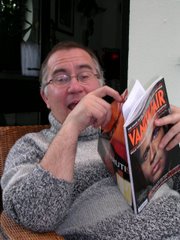Michael Lewis, a journalist and the author of “Liar’s Poker” and “Moneyball,” appeared in the magazine Poetry for the first time in the summer of 2005, with a satirical piece called “How to Make a Killing from Poetry: A Six Point Plan of Attack.” It offered its advice in bullet-point businessese: “1) Think Positive. Nobody likes a whiner. And poets always seem to be harping on the negative. . . . 2) Take Your New Positive Attitude and Direct It Towards the Paying Customer. The customer is your friend. Your typical poem really doesn’t seem to pay much attention to the living retail customer. . . . 3) Think About Your Core Message. Your average reader might like a bit of fancy writing, but at the end of the day he will always ask himself: what’s my takeaway?” So it was slightly odd, and unintentionally comical, when, last September, Poetry published a manifesto, “American Poetry in the New Century,” recapitulating Lewis’s lampoon as a serious position.
The author was John Barr, a former Wall Street executive and the president of the Poetry Foundation, an entity created after the Indianapolis heiress Ruth Lilly gave some two hundred million dollars to Poetry, in 2002. The foundation, which “exists to discover and celebrate the best poetry and to place it before the largest possible audience,” also publishes the magazine.
In the essay, Barr declared, “American poetry is ready for something new because our poets have been writing in the same way for a long time now. There is fatigue, something stagnant about the poetry being written today.” Poetry, largely absent from public life—from classrooms, bookstores, newspapers, mainstream media—“has a morale problem,” he said; it is in “a bad mood.” Poems are written only with other poets in mind, and therefore do not sell. (Two thousand copies is the industry standard.) He argued that the effect of M.F.A. programs, increasingly prevalent since the nineteen-seventies, has been “to increase the abundance of poetry, but to limit its variety.
The result is a poetry that is neither robust, resonant, nor—and I stress this quality—entertaining.” In a section titled “Live Broadly, Write Boldly,” he urged poets to do as Hemingway did, and seek experience outside the academy—take a safari, go marlin fishing, run with the bulls. “The human mind is a marketplace, especially when it comes to selecting one’s entertainment,” he wrote. “If you look at drama in Shakespeare’s day, or the novel in the last century, or the movie today, it suggests that an art enters its golden age when it is addressed to and energized by the general audiences of its time.”
The New Yorker : fact : content
Monday, 12 February 2007
Subscribe to:
Post Comments (Atom)


No comments:
Post a Comment